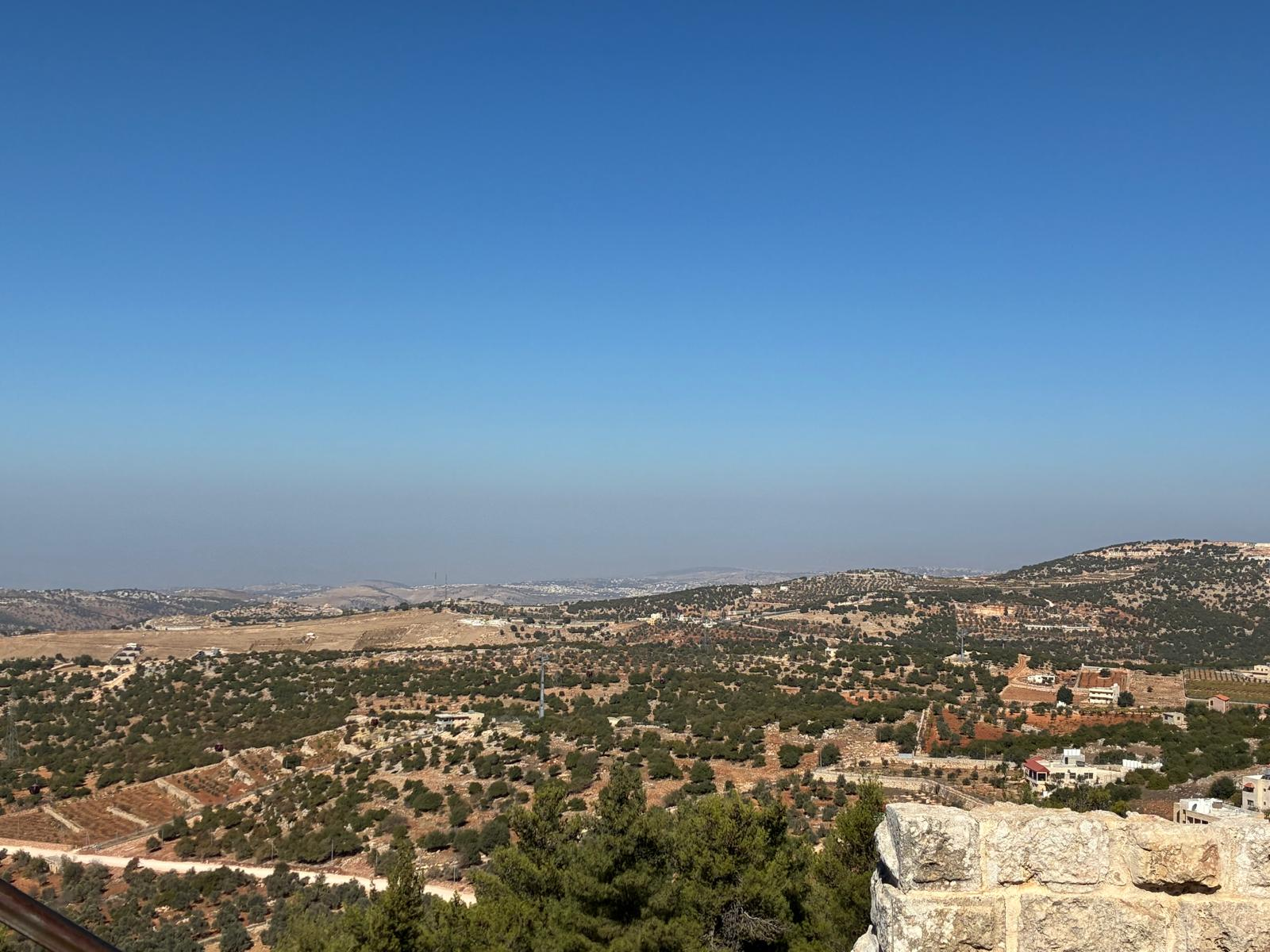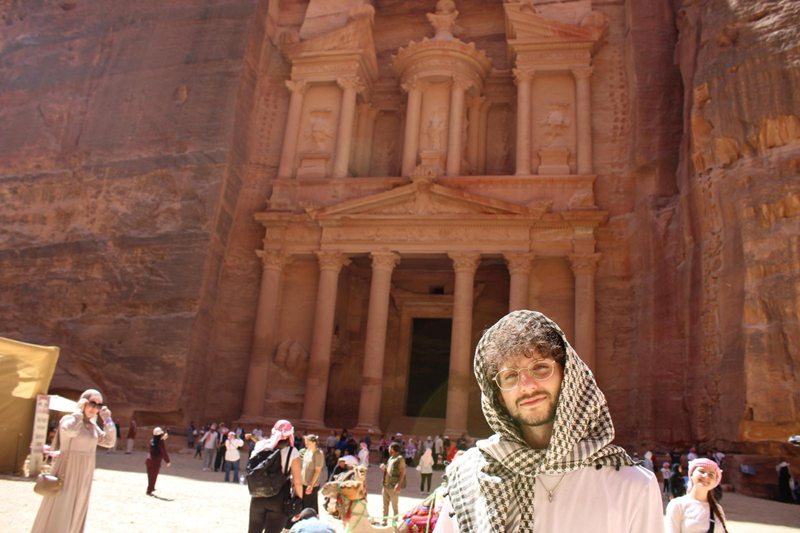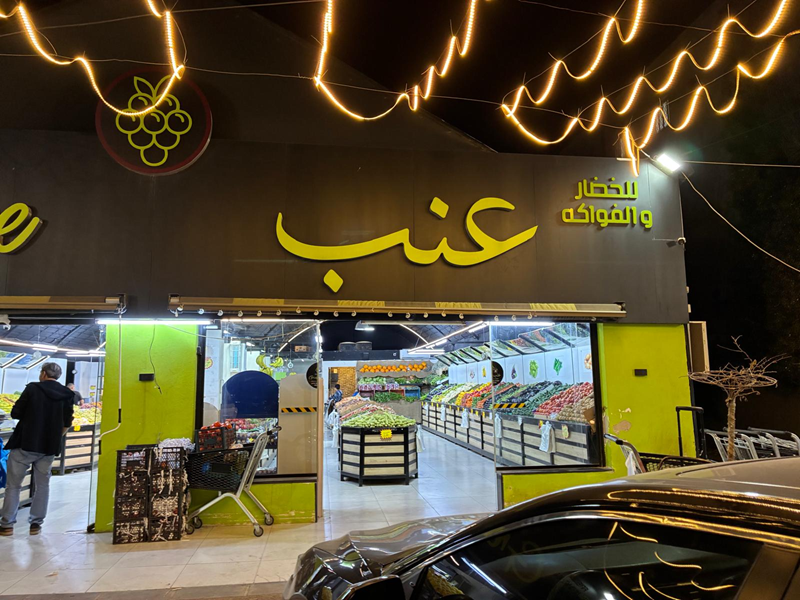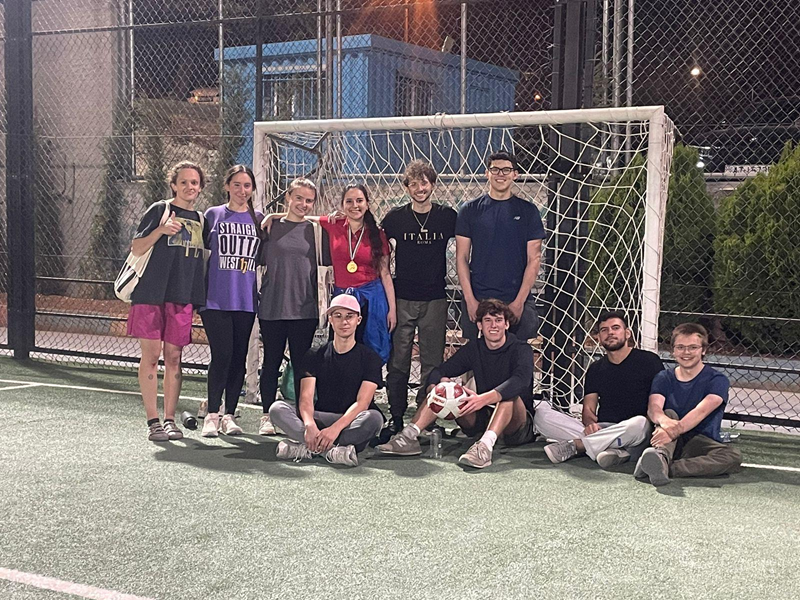Written by Timo Isreb, (Cornell University), Student Correspondent for CET Jordan, Fall 2025
It wasn’t until late October, watching the sunset in Jordan’s Ajloun nature reserve, that I finally admitted something I’d been avoiding: I needed to change my approach.

See, going in, I didn’t know what to expect from studying abroad in Jordan—and that was never a problem to me. Whatever happened, I figured the experience would be valuable.
I let myself daydream about all the possibilities of what I could do. What if I did a senior honors thesis based on research with the refugee community? I could take on a journalism internship and build some real-world experience in a new place. After a semester of studying Arabic, I’ll finally be able to have fluent conversations with my Syrian grandparents. Hey, maybe while I’m in Amman, I’ll start up a new exercise routine. While I’m at it, why don’t I sign up to be a CET correspondent?

Do you see the problem? Without realizing it, I’d set a lot of lofty expectations for what a “successful” study abroad experience would look like. And when I inevitably fell behind or got sidetracked, I felt like I was letting myself down—which only demotivated me.
It’s not that these were bad ideas. Any one of them would be an accomplishment. But before any of them could be possible, I needed to have some very basic things worked out first—things I took for granted in the U.S.
Working Out the Basics
Like, how was I going to eat every day? While back in the U.S., I’d come to rely on frozen meals from the supermarket, Amman does things a little bit differently. Sure, there’s a Safeway and some relatively cheap fast food. But to get a balanced meal, most Jordanians use ingredients from the many fresh fruit/vegetable markets and butchers. So if I wanted to eat healthy, I would need to spend time going to multiple shops around the neighborhood.

And there-in lies a rub—not the rub, but one of them, at least: Jordan is a very car-dependent society, rivalling even the great state of Texas. Auto loans and the rideshare industry are major drivers of the economy. But as a student, you’ll have to walk to most of the shops you’ll be frequenting. Taxis and Ubers might seem cheap, but since they only take cash (and most ATMs charge a foreign transaction fee), they add up quickly!
Finding the motivation to walk around, often in the heat, after a long day or week of classes can be tough. It’s even tougher if you don’t sleep or hydrate well. Personally, I’m a late owl and a slow riser. When I sign up for classes every semester, my only rule is “Nothing before 10 A.M.!”
But at CET Jordan, you may be starting your classes at 8 A.M. and wrapping up around 3 P.M. Attendance and active participation are key parts of your grade here, so setting a consistent sleep schedule is critical to success. Know what you need out of your sleep environment, and prioritize setting that up early. Prefer peace and quiet? Invest in some earplugs, because Jordan’s second language is car horns! Anxious around minor insects? Make sure to get a bug zapper. I swear I spent five hours one night just swatting 20 mosquitoes with my hands.
And take my advice—if you’re not a gym fanatic already, wait until you get back to the States to start. Gyms in Sweifieh—where CET Jordan is based this semester—are shockingly expensive. Exercise by getting a run in or organizing a soccer game!

You may find that your CET apartment doesn’t have a big desk or seating area fit for studying, so be sure to look for study spots or cafés in the area early on. Making a habit of going to one, dedicated place to work—it’s a little thing that can make all the difference. Luckily, the CET Canvas page offered us a useful list of study spots in Sweifieh!
Most of all, lean on CET and your jiran (local roommates). They know all about living sustainably in Jordan, and they’ll help you figure out some basics you might not have even considered.
Setting Realistic Goals
Besides setting up a healthy foundation for living in Jordan, there are two things I wish I did early on. First, I wish I’d brought a planner with me! Usually, I manage my time using a Google Sheet that I fill with every single due date for my entire semester based on the syllabi. That’s not really feasible in a language-learning program, because the curriculum will change based on the progress and needs of the students.
Rather than working up to a few big assignments you can cram for, you’re supposed to spend a little bit of time each weekday practicing Arabic and working on assignments. A physical planner will help you build a weekly schedule that can be flexible as the semester evolves. And unfortunately, planners are almost impossible to find in Amman!

Secondly, I wish I’d articulated three simple, achievable academic goals early on in the semester. Set expectations low and be prepared for flexibility, because this is a demanding program. Then check in every few weeks to ask: Am I on track to accomplish what I set out to do?
Yes, keeping an open mind is great when you’re studying abroad. You’ll get hooked on all there is to discover from Jordan’s fascinating cultural and historical mosaic. But you’re also at CET to study Arabic, one of the hardest languages for English speakers to learn, and that has to take up the lion’s share of your time. I am a heritage speaker with Syrian parents, and while I can tell the difference between ح and ه and ا and ع much easier than my peers can, I had to work really hard to communicate with them and with Jordanians. It was so tempting to break the language pledge, since my classmates were using the Jordanian or standard version of words that I only knew the Syrian versions of.
I don’t have a lot of time left in the semester now, and I have to let go of lots of what I’d hoped to do. Still, in the process, I’ve learned a lot about the importance of prioritization and focusing on the basics. You’ll probably have to learn some hard lessons of your own, but isn’t that what studying across the world is all about?